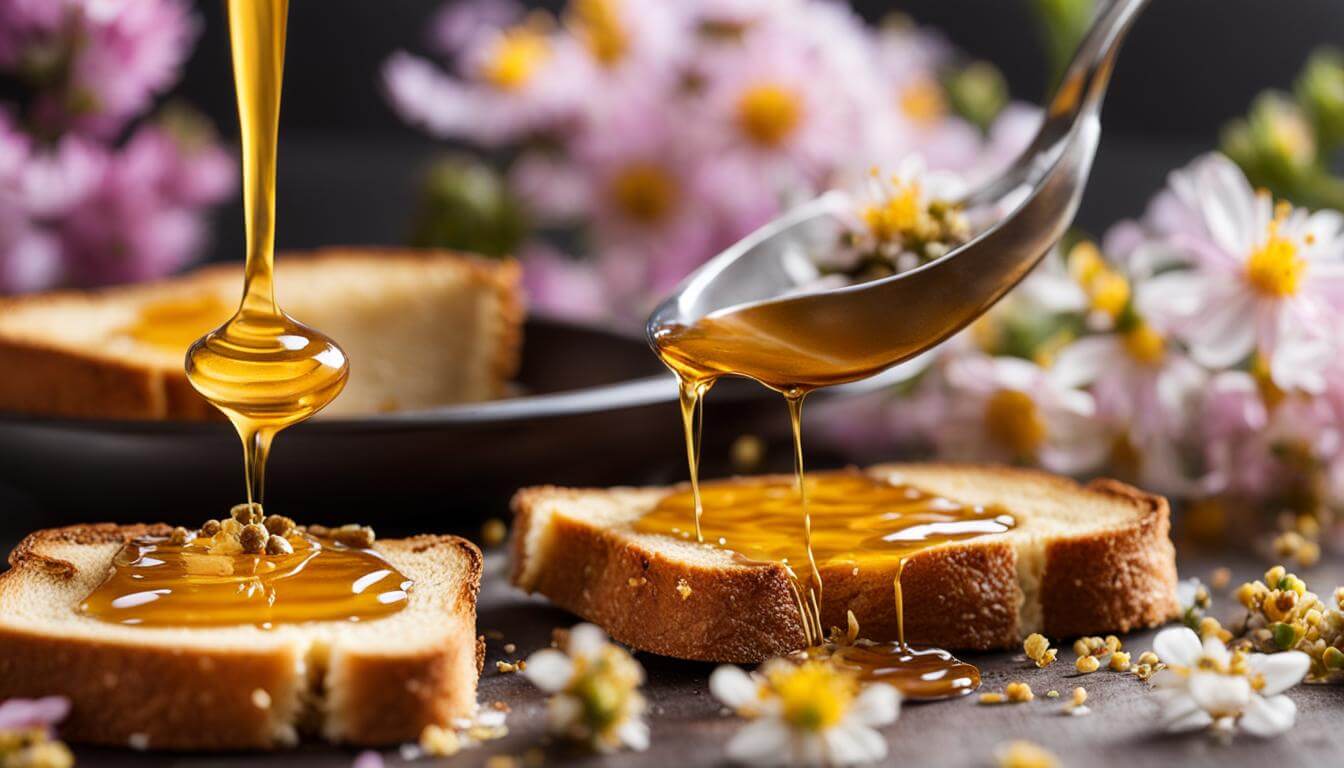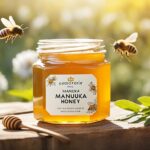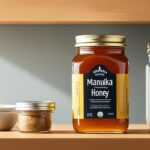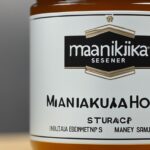Season after season, allergy sufferers scour the globe for allergy remedies that offer genuine relief. Among the plethora of options, one natural wonder stands out for its purported healing elixir: Manuka honey. Famous for its distinct flavor and Manuka honey benefits, this rare commodity promises more than just sweet satisfaction—it hints at natural allergy relief that could revolutionize how we go about managing allergies. But how does it work, and can something as simple as honey truly ease the sneezes and itches of those perennial allergy challenges?
Dive into the world of Manuka honey with us, as we unearth its secrets and determine whether this golden nectar can be the key that unlocks a world free of allergy woes.
The Unique Properties of Manuka Honey
Regarded as one of the most exceptional types of honey in the world, Manuka honey stands out due to its unique antibacterial properties and significant health benefits. Harvested in New Zealand from the nectar of the Manuka bush, Leptospermum scoparium, Manuka honey’s distinctive characteristics have captured the attention of both health enthusiasts and scientific communities worldwide. Its antimicrobial efficacy is often attributed to the presence of the Unique Manuka Factor (UMF) rating and the Methylglyoxal (MGO) content, two critical indicators of quality and purity.
One of the pivotal factors making Manuka honey uniquely potent as an antibacterial honey is its UMF rating. The UMF grading system measures the non-peroxide activity often responsible for the honey’s antibacterial strength. A higher UMF rating implies a greater concentration of key compounds such as leptosperin, dihydroxyacetone, and MGO, which are largely responsible for the therapeutic traits of Manuka honey. Consumers rely on the UMF rating to ensure they are getting a product that meets potent efficacy standards.
MGO content is another crucial element in defining the Manuka honey characteristics. Methylglyoxal is a compound found in most types of honey in small quantities, but in Manuka honey, MGO comes in much higher concentrations, contributing significantly to its powerful antibacterial and antimicrobial properties. Studies have shown that MGO can prevent the growth of certain bacteria and support wound healing, making it an integral component of Manuka honey quality assessment.
- Antibacterial Efficacy: Well-known for its ability to fight bacteria, making it a popular choice for alternative therapies.
- UMF Rating: Determines the antibacterial potency, allowing consumers to select the strength appropriate for their needs.
- MGO Content: Manuka honey’s high MGO levels are directly proportional to its antibacterial and medicinal benefits.
- Natural Origin: Sourced from the pristine New Zealand environment, Manuka honey is treasured for its purity and natural origins.
| UMF Rating | Equivalent MGO Content | Suggested Use |
|---|---|---|
| UMF 5+ | 83 mg/kg | Daily wellness support |
| UMF 10+ | 263 mg/kg | Mild therapeutic use |
| UMF 15+ | 514 mg/kg | Stronger therapeutic action |
| UMF 20+ | 829 mg/kg | High-end medicinal quality |
By understanding the nuances of Manuka honey characteristics, such as the UMF rating and MGO content, consumers can make informed decisions about the best Manuka honey to suit their wellness goals. Whether applied topically or taken internally, Manuka honey’s unique capabilities extend beyond that of typical antibacterial honeys, making it a premium choice in natural health products.
Manuka Honey and Allergies
Exploring the connection between Manuka honey and allergies unveils a realm where natural remedies intersect with modern science. With its reputation for potent anti-inflammatory properties, Manuka honey has become a subject of interest for many seeking relief from seasonal allergies. This section delves into how the natural components found in Manuka honey may play a role in alleviating allergic symptoms.
Honey for allergies is not a novel concept. In fact, the use of honey as a natural solution dates back to ancient times. However, it’s Manuka honey’s unique anti-inflammatory compounds that set it apart, offering a different dimension to allergy management. The presence of methylglyoxal (MGO) in high concentrations contributes significantly to Manuka honey’s therapeutic effects.
One may wonder how effective Manuka honey is in the context of allergies. To better understand its impact, we can look into its primary anti-inflammatory actions:
- Reduction of inflammation in the respiratory pathways.
- Alleviation of scratchy throat symptoms associated with allergies.
- Modulation of the immune response to allergens.
While these properties are promising, it’s important to consider that individuals may respond differently to natural treatments. Thus, incorporating Manuka honey into an allergy management plan should be done thoughtfully, with attention to one’s specific condition. The inclusion of Manuka honey cannot replace medical treatment but may complement existing allergy strategies. Below is an overview of how Manuka honey could be integrated into dealing with seasonal allergies.
| Allergy Symptom | Potential Manuka Honey Impact |
|---|---|
| Nasal Congestion | May provide relief through anti-inflammatory action |
| Itchy, Watery Eyes | Antioxidants in Manuka honey may reduce irritation |
| Sneezing Fits | Regular consumption might decrease frequency |
| Sore Throat | Soothing effect due to antimicrobial properties |
To harness the Manuka honey anti-inflammatory effects, many allergy sufferers turn to a daily spoonful of this rich honey, especially during peak allergy season. But as with any natural remedy, the experience of its benefits can range from subtle to significant.

In conclusion, while scientific research continues to evolve, the anecdotal and traditional uses of Manuka honey for allergies suggest it could be a helpful tool in the natural management of allergic symptoms. Though certainly not a cure, it offers a gentle, supportive approach to those navigating the challenges of seasonal allergies.
Can Manuka Honey Alleviate Allergy Symptoms?
Searching for a natural allergy treatment, many individuals are turning to Manuka honey relief for its potential benefits. Manuka honey, a unique variety originating from New Zealand, has been at the forefront of natural remedies due to its anti-inflammatory and antibacterial properties. This section of the article dives into the current understanding of Manuka honey’s role in allergy symptom reduction.
Despite the lack of extensive clinical trials, numerous smaller studies and anecdotal reports suggest that Manuka honey may offer soothe from various allergens. Below we explore the mechanisms which might make this natural substance a candidate for alleviating discomfort associated with allergies.
- Anti-Inflammatory Action: Manuka honey contains compounds that are believed to have anti-inflammatory effects, potentially reducing the inflammation caused by allergic reactions.
- Antioxidant Components: High levels of antioxidants in Manuka honey could aid in repairing tissue damage and mitigating oxidative stress triggered by allergens.
- Immune System Modulation: Some research implies that Manuka honey may influence the immune system, modulating its response to less aggravate allergy symptoms.
While the scientific community continues to investigate these properties, incorporating Manuka honey into the diet for allergy management should be done after consulting with healthcare providers, particularly for those with sever allergies or who are prone to allergic reactions. Below is a visual breakdown of the potential benefits Manuka honey may provide, based on existing observations and insights from natural remedy practitioners.
| Benefit | Description | Potential Impact on Allergies |
|---|---|---|
| Anti-Inflammatory | Reduces inflammation | May decrease symptoms like swelling and redness |
| Antioxidant | Combats oxidative stress | Supports tissue repair and immune health |
| Immune Modulation | Adjusts immune system reactions | Could lead to a more balanced response to allergens |
It is crucial to recognize that while Manuka honey shows promise, it is not a panacea and should not replace traditional medical treatments for allergies. It is meant to complement existing therapies and may help promote overall wellness and allergy symptom reduction when used in moderation.
How to Incorporate Manuka Honey into Your Diet
Integrating Manuka honey into your daily routine can be a delightful and healthful addition. Imagine starting your day with the natural sweetness of Manuka honey or winding down your evening with a soothing honey-infused drink. By consuming Manuka honey, you’re giving your body a taste of nature’s riches.
When it comes to incorporating Manuka honey into your diet, the key is moderation and diversity. Consider these dietary tips:
- Begin with a small daily dose, such as one to two teaspoons, and listen to how your body responds.
- Manuka honey can be a great natural sweetener; try it in your morning tea or drizzled over oatmeal.
- For an energizing snack, mix Manuka honey into your yogurt or smoothie.
- Redefine salad dressings and marinades by whisking in a bit of this potent honey.
Always opt for authentic Manuka honey with a UMF certification to ensure you’re getting the genuine benefits. Keep in mind that daily honey intake should complement a balanced diet.
In the culinary world, Manuka honey’s distinct flavor can enhance a variety of dishes. Here’s a suggestion of three ways to relish Manuka honey:
- As a topping: Slather Manuka honey on your morning toast or add a luscious layer to a stack of pancakes.
- In beverages: Sweeten your herbal teas or craft innovative cocktails with a hint of Manuka honey.
- Healing mixture: Combine it with warm water, lemon, and ginger for a soothing elixir.
Remember to store your Manuka honey in a cool, dark place to preserve its natural properties. By integrating Manuka honey into your diet carefully, you’re not only enhancing flavors but also investing in your well-being.
The Safe Consumption of Manuka Honey for Allergy Sufferers
When it comes to the consumption of Manuka honey, individuals who experience allergic sensitivities must proceed with caution. While Manuka honey is praised for its potential health benefits, including the alleviation of allergic symptoms, the reality is that for some, it may also trigger allergic reactions to honey. Understanding safe honey intake and adhering to dietary precautions is essential for protecting against any adverse reactions.
To ensure that you enjoy the reputed benefits of Manuka honey without compromising your safety, consider the following actionable guidelines tailored for those with allergy concerns:
- Start with small quantities: If you’re trying Manuka honey for the first time, introduce it in small amounts to monitor your body’s response.
- Know your allergens: Be aware of your specific allergies and consult with a healthcare provider to confirm if Manuka honey is suitable for you.
- Source quality honey: Purchase your Manuka honey from reputable suppliers to ensure you are getting pure, high-quality product.
- Read labels carefully: Check for UMF (Unique Manuka Factor) ratings and MGO (Methylglyoxal) levels to select the right type of Manuka honey based on your needs and sensitivities.
- Pay attention to body signals: If any symptoms of an allergic reaction occur, such as itching or difficulty breathing, stop consumption immediately and seek medical attention.
- Maintain a balanced diet: Incorporate Manuka honey as one component of a well-rounded diet, and avoid over-reliance on any single food source.
In taking these steps, those with allergies can approach Manuka honey as a possible part of their dietary regimen while minimizing the risk of unexpected allergic reactions. Always remember, when it comes to health, an ounce of prevention is worth a pound of cure.
Side Effects and Considerations When Using Manuka Honey
Despite the bountiful health benefits often associated with Manuka honey, consumers should be mindful of the potential side effects and health considerations that come with its use. Specifically, individuals looking to integrate this natural product into their wellness routine must pay attention to Manuka honey side effects and potential risks. As with any dietary supplement, it is vital to consume Manuka honey in moderation and be aware of its high sugar content.
One of the crucial factors when choosing Manuka honey is to ensure it is genuine and pure. Due to the specialized nature of Manuka honey, originating from New Zealand’s Manuka bush, selecting a trusted brand is essential to mitigate the risks associated with adulterated or low-quality products. Let’s explore some of the considerations and potential risks linked to the use of Manuka honey:
- Allergic Reactions: Although rare, there are reports of individuals experiencing allergic reactions after consuming honey, which could range from mild to severe.
- Blood Sugar Impact: Being a natural sweetener, Manuka honey can impact blood sugar levels, which is an essential consideration for those with diabetes or other blood sugar-related conditions.
- Caloric Content: Manuka honey is high in calories, and excessive consumption might contribute to an increase in weight if not balanced with regular physical activity.
- Botulism Risk: As with any honey, there’s a small risk of botulism spores, which could be harmful to infants under one year of age. It is advised that Manuka honey should not be given to babies.
While the likelihood of experiencing adverse effects from Manuka honey is low, it’s significant to start with small amounts. Monitoring your body’s response will help identify any unusual reactions, ensuring that the honey health considerations are well managed. The potential for Manuka honey side effects is a reminder that moderation and mindfulness are key components of a health-focused diet.

Choosing the Right Manuka Honey Grade for Allergies
When it comes to finding relief from allergies, not all Manuka honey is created equal. Understanding the potency of Manuka honey and its UMF grades is crucial for those looking to harness its health benefits. This article provides an essential guide for buying high-grade Manuka honey, ensuring that you select the most suitable product for your allergy-related needs.
A key factor in evaluating the potency of Manuka honey is its Unique Manuka Factor (UMF). This grading system assesses the antibacterial strength and certifies the purity of the honey. Here is a breakdown of UMF grades and their relevance to allergy sufferers:
| UMF Grade | Potency Level | Suitable Uses |
|---|---|---|
| UMF 5+ | Low | Maintenance of general well-being |
| UMF 10+ | Medium | General issues; potentially suitable for mild allergy symptoms |
| UMF 15+ | High | More pronounced antibacterial effects; could help with more persistent allergy symptoms |
| UMF 20+ | Maximum | Targeted therapeutic use, such as significant allergy symptoms and inflammation |
While a higher UMF grade generally indicates a more potent antibacterial activity, it’s essential to match the grade with your specific health needs. For instance, if you have severe allergy symptoms, a high-grade Manuka honey like UMF 20+ might offer the best support. Conversely, for daily health maintenance or mild allergy symptoms, a UMF 10+ Manuka honey could be sufficient.
Remember to consult with a healthcare professional before incorporating Manuka honey into your diet, especially if you have severe allergies or are taking other allergy medications. With the right Manuka honey UMF grade, you can enjoy the natural benefits and potentially find relief from your allergy symptoms.
Real Stories: Allergy Sufferers and Their Experiences with Manuka Honey
Within the realm of natural remedies, Manuka honey has emerged as a beacon of hope for many struggling with allergies. The journey towards finding relief is deeply personal and often complex, and allergy relief testimonials tell tales of both struggles and victories. In sharing Manuka honey success stories, a pattern of hope emerges, threaded with the experiences of individuals who’ve sought comfort in the natural benefits of Manuka honey.
Personal allergy journeys may begin with skepticism but often lead to surprising discoveries. For those willing to explore beyond conventional treatments, Manuka honey’s unique antibacterial and anti-inflammatory properties have offered a form of solace. The courage to try something new and the shared experiences from doing so have given rise to a community of believers in the natural healing powers of this remarkable product.
Anecdotes from parents describe the relief their children have found from persistent seasonal allergies, with some observing a reduction in symptoms by incorporating a daily spoonful of Manuka honey into their diet.
Active individuals, too, recount how incorporating Manuka honey into their pre-workout meal routine has possibly contributed to better overall respiratory wellness, believed to ease the common distress of exercise-induced allergies.
Still others with a history of allergic sensitivities express how Manuka honey has become an integral part of their skin care regimen, aiming to soothe and heal skin issues exacerbated by allergic reactions.
The personal allergy journeys echo a sentiment of empowerment—a reclaiming of control over one’s well-being. Manuka honey’s reported success traverses beyond mere physical relief; it embodies the spirit of individuals yearning for a life less hindered by the chains of allergy symptoms. Each story stands as a testament and adds to the collective knowledge and growing narrative surrounding this powerful product.

While not a panacea, the lure of Manuka honey’s potential benefits continues to captivate those affected by allergies. It’s a remedy intertwined with nature’s simplicity and the complexities of human biology—an elixir born from bees that’s weaving its way into the tapestry of holistic allergy relief strategies.
Exploring Alternative Natural Remedies for Allergies
While many have turned to Manuka honey for allergy relief, a spectrum of natural allergy solutions exists beyond this sweet remedy. For those seeking alternative remedies or herbal allergy relief, the following options can be a departure from conventional medications and a step toward holistic well-being.
- Herbal Teas: Known for their anti-inflammatory properties, teas such as peppermint, ginger, and nettle can help to alleviate nasal congestion and soothe irritated airways.
- Probiotics: These beneficial bacteria can modulate the immune system, improving gut health, and potentially reducing allergy symptoms.
- Essential Oils: Eucalyptus, tea tree, and lavender oils are praised for their ability to clear sinuses and reduce inflammation when diffused or applied topically with a carrier oil.
Integrating these herbal allergy relief methods can complement a diet inclusive of Manuka honey and add depth to the approach of managing allergies. Yet, it’s crucial to consult with a healthcare professional before adopting new dietary or wellness routines.
Understanding the role each of these remedies can play in allergy relief allows for a personalized plan that accommodates lifestyle, preferences, and health needs. Whether it’s through a cup of soothing tea or the strategic use of probiotics and essential oils, the journey to mitigating allergy symptoms can be a testament to the potency of nature’s offerings. Remember, natural remedies are friends not only to our bodies but also to our ongoing quest for respite from seasonal sniffles and reactions.
Professional Perspectives: Medical Expert Insights on Manuka Honey for Allergies
Gleaning allergist insights and health expert opinions is imperative for those considering Manuka honey as part of their allergy treatment plan. We’ve reached out to medical professionals to collect valuable medical advice on honey and its role in allergy management. The following table encapsulates the key points shared by allergy specialists and nutrition experts.
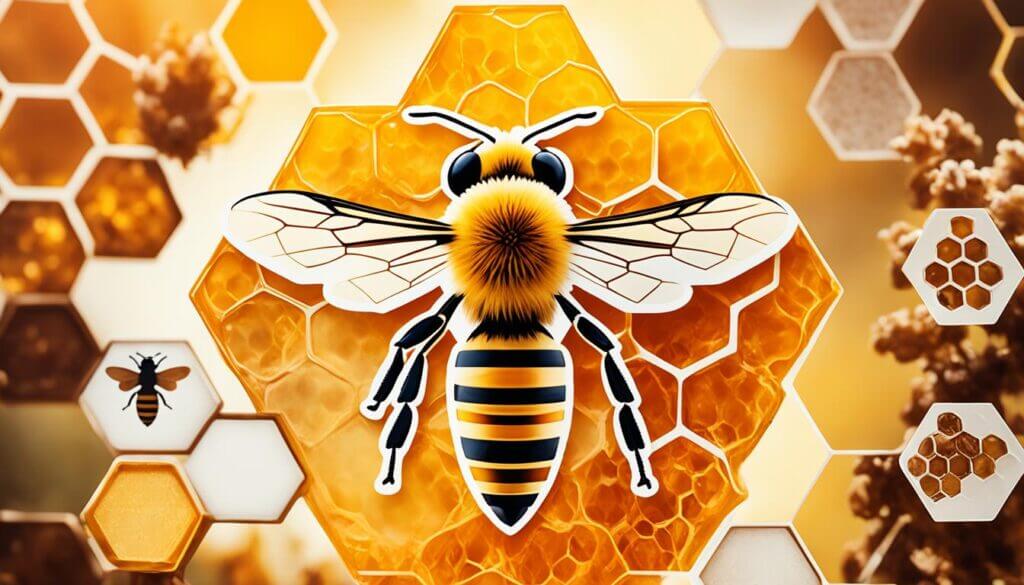
| Expert | Qualification | Insight on Manuka Honey | Recommended Use |
|---|---|---|---|
| Dr. Amy Davis, MD | Allergist/Immunologist | Supports the use of Manuka honey to alleviate minor allergy symptoms due to its anti-inflammatory properties. | A teaspoon daily during allergy season, not exceeding three months continuously. |
| Nina Roberts, RDN | Registered Dietitian Nutritionist | Advocates for Manuka honey’s natural antibacterial qualities and suggests it can support immune health. | Integrate into meals, such as on toast or in tea, but be mindful of sugar intake. |
| Dr. Laura Hernandez, PhD | Biomedical Scientist | Emphasizes the importance of research on Manuka honey’s varied MGO content for specific allergy types. | Consult an allergist to align Manuka honey’s MGO rating with your allergy profile. |
As echoed by the experts, while Manuka honey can be a complementary approach to managing allergies, it’s crucial to use it judiciously and in moderation. Balancing the sweet benefits of this natural product with a healthy diet and lifestyle remains a cornerstone of effective allergy management.
Manuka Honey Recipes Catered to Allergy Sufferers
Delving into the world of Manuka honey culinary uses, our goal is to uncover delightful honey-infused dishes that can be enjoyed by those with food sensitivities and allergies. Offering a range of allergy-friendly recipes, we aim to navigate the rich flavors of Manuka honey while accommodating dietary restrictions.
From breakfast to dessert, we’re highlighting the versatility of Manuka honey in creating appetizing and soothing meals. Whether you’re looking to start your day with a nutrient-packed smoothie or end it with a sweet treat that doesn’t trigger your allergies, our carefully selected recipes using Manuka honey are designed to please your palate and provide potential health benefits.
- Honey Almond Breakfast Smoothie: A blend of bananas, almonds, and a generous drizzle of Manuka honey makes for a perfect start to the day, ensuring you get a burst of energy without any adverse allergic reactions.
- Manuka Honey Glazed Carrots: Simple yet superbly flavorful, this side dish of carrots roasted with a touch of Manuka honey brings a natural sweetness that elevates the taste profile of your main course.
- Grilled Honey-Infused Chicken: Discover the succulence of chicken breasts marinated in a Manuka honey mixture, which not only adds a rich glaze but also aids in tenderizing the meat to perfection.
- Manuka Honey and Oatmeal Cookies: Indulge in these allergy-friendly treats that exclude common triggers without compromising on taste. The Manuka honey inclusion provides a natural, rich sweetness, ideal for a cozy night in.
Each recipe featuring Manuka honey not only caters to various dietary needs but also showcases the sweetness and texture that only this unique honey can bring. Embrace these inventive honey-infused dishes and allow your culinary skills to flourish, even within the realm of allergy-conscious cooking.
Conclusion
As we reach the end of this comprehensive exploration, we’ve unearthed valuable insights into the summary of Manuka honey benefits and their relevance to those seeking natural allergy relief. It’s apparent that Manuka honey, with its unique antibacterial and anti-inflammatory properties, holds promises for allergy sufferers, providing a natural complement to traditional allergy management strategies. Reflecting on the key takeaways on Manuka honey and allergies, it becomes evident that while Manuka honey can potentially alleviate some allergy symptoms, individual experiences and results may vary.
Throughout our discussions, we’ve stressed the importance of considering the UMF rating and MGO content to select a Manuka honey with the quality and potency suitable for one’s specific needs. Delving into real stories from individuals who have integrated this golden elixir into their diet has further illuminated the diverse and personalized nature of allergy management. While we have been inspired by many success stories, we must also heed the safety considerations and potential side effects, highlighting the intrinsic value of moderation and mindfulness when adding Manuka honey to one’s dietary regime.
In closing, remember that the pursuit of wellness should be a journey accompanied by informed decision-making and, where necessary, professional medical advice. Therefore, it is crucial to consult with a healthcare provider before introducing Manuka honey, or any new remedy, into your treatment plan. This article leaves you with a crystallized understanding of where Manuka honey might fit within the spectrum of natural allergy solutions, empowering you to make choices that best suit your health and lifestyle.
